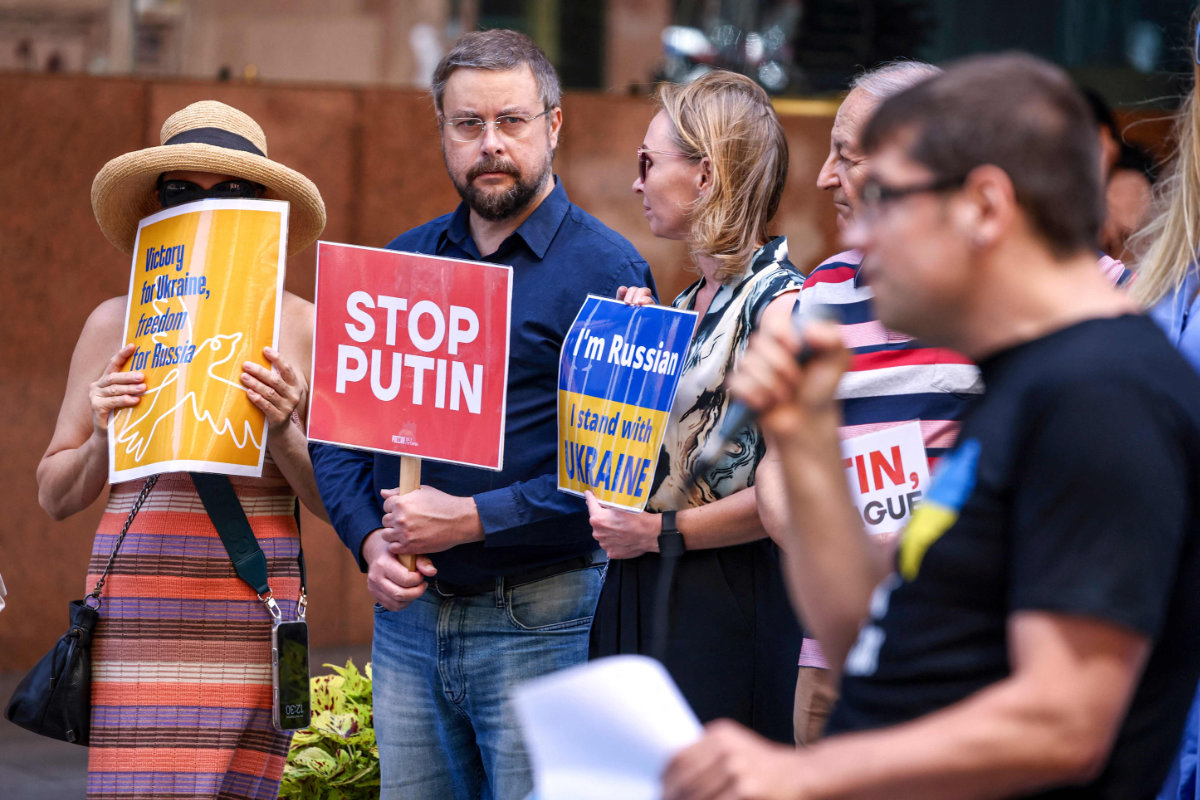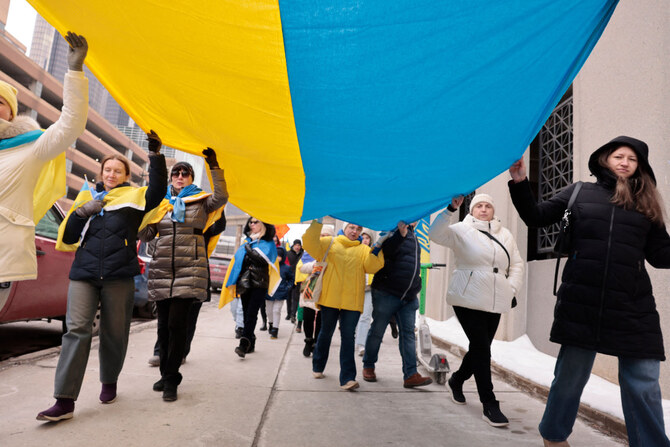UNITED NATIONS: Defying Kyiv and its European allies, Washington plans on Monday to submit to the UN Security Council and General Assembly a draft text that calls for a “swift end” to the Ukraine conflict but makes no reference to its territorial integrity, in an early test of Donald Trump’s muscular approach to the crisis.
Since Russian forces invaded Ukraine three years ago, the balance of power at the United Nations has been clear: the General Assembly, representing all members, has clearly and overwhelmingly supported Ukrainian sovereignty, while the 15-member Security Council has been paralyzed by Russia’s veto power.
But Trump’s return to the White House last month has brought a dramatic reshuffling of the diplomatic cards, as he undertakes a clear rapprochement with the Kremlin while dismissing his Ukrainian counterpart, the severely pressured Volodymyr Zelensky, as a “dictator.”
Against this tense diplomatic backdrop, Ukraine and more than 50 other states are planning on Monday — the third anniversary of the Russian invasion — to introduce a text before the General Assembly saying it is “urgent” to end the war “this year” and clearly repeating the Assembly’s previous demands: an immediate cessation of Russian hostilities against Ukraine and an immediate withdrawal of Russian troops.
Amid heated speculation that the United States might abstain from the General Assembly vote — expected around midday — Washington generated widespread surprise Friday by proposing a competing text.
The US resolution is “simple (and) historic,” Secretary of State Marco Rubio said late Friday, as he urged member states to approve it.

A group from the Russian community in Australia hold placards during a demonstration in central Sydney on February 24, 2025 marking the third anniversary of Russia’s invasion of Ukraine. (AFP)
The tersely worded US draft “implores a swift end to the conflict and further urges a lasting peace between Ukraine and Russia.”
It makes no reference to Ukrainian territorial integrity, a cornerstone of the previous resolutions passed by the Assembly, with the United States under former president Joe Biden among its strongest supporters.
For Vassili Nebenzia, the Russian ambassador to the UN, the American resolution is “a good move,” though he believes it should also “address the root causes” of the war.
According to diplomatic sources, the American delegation plans to submit that text to a Security Council vote set for 3 p.m. (2000 GMT) Monday, according to the Chinese presidency of the Council.
The vote will place European delegates in an awkward position.
To be adopted, a resolution needs the votes of at least nine of the 15 Security Council members — while not being vetoed by any of the five permanent members (the United States, Britain, France, Russia and China).
Even if the EU members (France, Slovenia, Denmark and Greece) along with Britain were to abstain, the resolution could still pass.
Would France or Britain be prepared to cast their first vetoes in more than 30 years — even as their respective leaders, Emmanuel Macron and Keir Starmer, are expected this week at the White House for key talks on Ukraine?
“I do not see how Paris and London can support a text that is so far from their stated positions on Ukraine, but I also do not see how they can veto it,” Richard Gowan of the International Crisis Group told AFP.
Predicting the outcome of the diplomatic confrontation in the General Assembly is not easy: While some Europeans are deeply unsettled by the American approach, several UN member states have grown tired of the constant attention to Ukraine, and some Arab countries have not forgotten Kyiv’s refusal to support their resolutions on Gaza.
For the Europeans, the competing votes will be “a test of their standing in the multilateral system.” At the same time, Kyiv could be left “increasingly isolated” if it draws too little support, Gowan said.
The votes also constitute “an early test of the Trump administration’s strong-arm approach to UN diplomacy,” he added.
With core principles of international law at stake, UN chief Antonio Guterres on Sunday called for a peace that “fully upholds Ukraine’s territorial integrity” and respects the UN Charter.

























